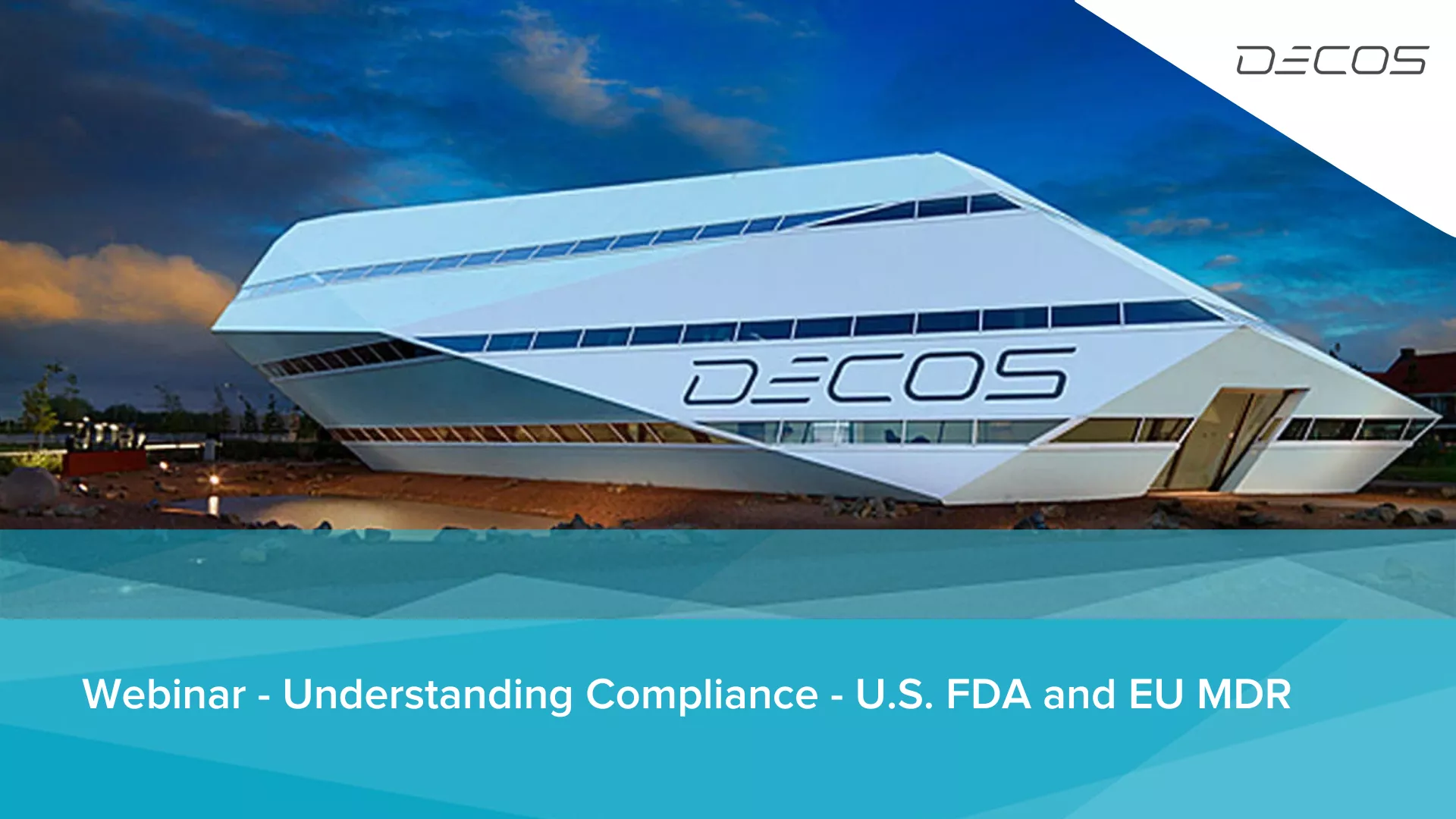Understanding Compliance: U.S. FDA and EU MDR
This webinar delivers a comprehensive examination of the regulatory obligations for medical devices as defined by two key frameworks: the U.S. Food and Drug Administration (FDA) and the European Union Medical Device Regulation (EU MDR). These regulations play a crucial role in ensuring the safety, efficacy, and regulatory compliance of medical devices, both pre- and post-market.

Topics Covered
1. Regulatory Overview:
1.1 U.S. FDA:
- Focuses on a tiered risk classification (Class I, II, III) with stringent controls both before and after a device hits the market to ensure its safety and effectiveness.
- Key regulatory processes include Premarket Approval (PMA) and 510(k) pathways.
1.2 EU MDR:
- Replaces the Medical Device Directive (MDD), adding more stringent post-market surveillance and broadening the range of devices covered, including aesthetic ones.
- Risk classifications span from Class I to Class III, with a greater focus on clinical evaluations and post-market oversight.
2. Pre-market Requirements:
- FDA: Follows a structured process involving design controls (21 CFR Part 820), risk management, and clinical validation studies.
- EU MDR: Focuses on continuous clinical assessments, such as General Safety and Performance Requirements (GSPR), Clinical Evaluation Reports (CERs), and compliance with ISO 13485 quality systems.
3. Software in Medical Devices:
- Software as a Medical Device (SaMD) and Software in a Medical Device (SiMD) have different regulatory pathways in both regions.
- Software risk classification differs, with both the FDA and EU MDR requiring strong cybersecurity measures, clinical validation, and post-market oversight.
- Compliance is aligned with standards like ISO 14971 (risk management) and IEC 62304 (software development).
4. Post-market Surveillance:
- Both systems mandate continuous monitoring of devices post-market to ensure they remain safe and effective.
- FDA: Focuses on Medical Device Reporting (MDR) and Post-Approval Studies (PAS).
- EU MDR: Introduces Periodic Safety Update Reports (PSUR) and mandates manufacturers to carry out Field Safety Corrective Actions (FSCA) and Post-market Clinical Follow-up (PMCF).
5. Risk Management and Labelling:
- Both the FDA and EU MDR highlight the importance of ISO 14971 for comprehensive risk management.
- Labelling requirements, including the Unique Device Identifier (UDI), are critical for transparency and traceability.
6. Key Differences:
- FDA: A centralized system with a stronger focus on pre-market evaluations.
- EU MDR: A decentralized framework, relying on Notified Bodies, with more focus on post-market clinical monitoring and ongoing evidence collection.
7. Compliance Timelines:
- FDA: 510(k) submissions typically take about 90 days, while PMA reviews for high-risk devices can take 180 days or more.
- EU MDR: Transition periods have been extended, with key deadlines now in May 2024, and further extensions granted for some devices up to 2027 and 2028.
Key Takeaways:
- Complying with both U.S. FDA and EU MDR regulations is critical for manufacturers seeking global market access.
- Proper risk management, thorough documentation, and attention to compliance deadlines are crucial for achieving regulatory approvals and ensuring market success.
- The regulatory environment is evolving, particularly in areas such as software, artificial intelligence, and cybersecurity, requiring manufacturers to be proactive and adaptable in their compliance efforts.
Conclusion: Both the U.S. FDA and EU MDR impose rigorous requirements to ensure medical devices are safe and effective. While the FDA places more emphasis on pre-market evaluations, the EU MDR focuses heavily on post-market surveillance. Successfully navigating these frameworks demands careful planning, interdisciplinary collaboration, and a solid commitment to regulatory best practices.
This webinar was presented by Decos, a cutting-edge technology services partner ready to meet your diversified needs.
If you have any questions about this webinar or wish to seek advice on medical device project, please contact Devesh at devesh.agarwal@decos.com
We would love to discuss it with you! We also have list of recaps of interesting webinars conducted in past. You can check out those here
Discover more

FOTA in Practice: Enhancing Device Performance with OTA Updates

Demystifying User Research


